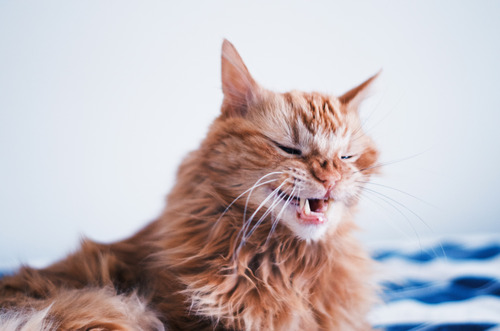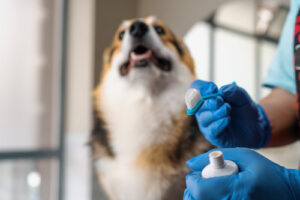As a pet owner, you might find yourself wondering, “Why does my indoor cat keep sneezing?” Sneezing in cats is not only a common occurrence but also one that can be puzzling and concerning. At Sunset Animal Hospital in Houston, TX, we understand that your pet’s health is a priority. In this blog, we explore seven potential reasons why your indoor cat might be sneezing and offer some guidance on when to seek veterinary care. For any concerns, please call us at (713) 526-5881 or request an appointment online.
Allergies
Environmental Allergies
Indoor cats can develop allergies to various environmental factors, such as dust, mold, and pollen. Even though your cat stays indoors, allergens can still enter your home through windows, doors, and on your clothing. These allergens can trigger sneezing and other symptoms like itchy skin, watery eyes, and coughing.
Food Allergies
Food allergies can also cause your indoor cat to sneeze. If your cat is allergic to certain ingredients in their food, their immune system may react, leading to sneezing and other symptoms such as vomiting, diarrhea, and skin irritations. Identifying and eliminating the allergen through an elimination diet can help alleviate these symptoms.
Respiratory Infections
Upper Respiratory Infections (URI)
Upper respiratory infections are common in cats and can cause sneezing. These infections can be viral, bacterial, or fungal in nature. Symptoms often include sneezing, nasal discharge, coughing, and lethargy. Common culprits include the feline herpesvirus and calicivirus. It’s essential to consult with a veterinarian if your cat shows signs of a URI, as they may require medication to recover fully.
Chronic Respiratory Conditions
Some cats develop chronic respiratory conditions that cause frequent sneezing. Conditions like feline asthma or chronic bronchitis can lead to ongoing respiratory issues. Regular veterinary check-ups are crucial for managing these conditions effectively and ensuring your cat’s well-being.
Foreign Objects
Cats are naturally curious creatures and might inhale or ingest foreign objects, which can cause sneezing. Common culprits include grass, dust particles, and small toys. If your cat continues to sneeze and seems distressed, it’s essential to contact a veterinarian to rule out any lodged foreign objects.
Chemical Irritants
Household chemicals and cleaning products can irritate your cat’s respiratory system, leading to sneezing. Even seemingly harmless products like air fresheners, scented candles, and certain types of litter can cause discomfort. Always use pet-friendly cleaning products and ensure proper ventilation to minimize exposure to irritants.
Dental Issues
Dental Disease
Dental disease is a lesser-known cause of sneezing in cats. Infections and inflammation in the mouth can spread to the nasal passages, causing your cat to sneeze. Symptoms of dental disease include bad breath, drooling, and difficulty eating. Regular dental check-ups and cleanings are vital to prevent and address dental issues.
Tooth Abscesses
Tooth abscesses can also lead to sneezing. An abscess is a pocket of pus caused by a bacterial infection. If the abscess is near the nasal cavity, it can cause irritation and sneezing. Prompt veterinary treatment is necessary to resolve the infection and alleviate your cat’s discomfort.
Nasal Polyps
Nasal polyps are non-cancerous growths in the nasal passages that can cause sneezing and other respiratory symptoms. These growths can obstruct airflow, leading to difficulty breathing, nasal discharge, and sneezing. A veterinarian can diagnose and remove nasal polyps, improving your cat’s quality of life.
Feline Herpesvirus
Feline herpesvirus (FHV) is a common viral infection that can cause sneezing, nasal discharge, and eye problems. Cats infected with FHV may have recurrent episodes of respiratory symptoms, especially during times of stress. While there is no cure for FHV, managing stress and supporting your cat’s immune system can help reduce the frequency and severity of outbreaks.
Contact Sunset Animal Hospital for Your Cat’s Sneezing Concerns
Understanding why your indoor cat keeps sneezing can be challenging, but knowing the potential causes can help you take appropriate action. If your cat’s sneezing persists or is accompanied by other symptoms, it’s essential to seek veterinary care. At Sunset Animal Hospital in Houston, TX, our team is here to provide the best care for your feline friend. Call us at (713) 526-5881 or request an appointment online to ensure your cat receives the attention they need.





